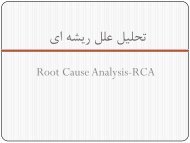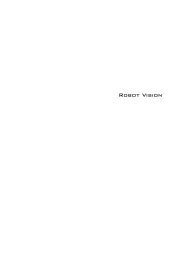E-Commerce
E-Commerce
E-Commerce
You also want an ePaper? Increase the reach of your titles
YUMPU automatically turns print PDFs into web optimized ePapers that Google loves.
4E-<strong>Commerce</strong>all economies are service economies, because the exchange of knowledge and skillscharacterizes all economic activities (Vargo & Lusch, 2004).According to the Service-Dominant Logic, value creation is based on service provision. Sincethe benefit from the service provision is manifested in the context of the customer, it meansthat what firms provide should not be understood in terms of outputs with value, but ratheras inputs for a continuing value-creation process with and by the consumers.The Nordic School takes a customer-oriented and relationship-focused perspective onbusiness and considers that the concept of serving the customer should be spreadthroughout the organisation and embedded in all business functions. Service managementseeks to understand the utility or value received by consumers in consuming or usingbusiness offerings and how services alone or together with physical goods contribute to thisutility (Grönroos, 1990). A service management perspective changes the general focus ofmanagement in all firms from the product-based utility to the total utility in the consumerrelationship. The focusing on the total utility, instead of more narrowly on the productbasedutility, means that the value added for the consumers coming from other elements ofthe relationships with the consumer is considered equally important as the value that isintrinsic in the business offering.Gummesson (1994) argues that the traditional division between goods and services is void.The business offering consists of many components, some of them being activities (services),some being things (goods). The consumer does not buy goods or services, but an offering,which renders service to the consumer and creates value for the consumer. As a result, weneed to redefine our theories and develop them from a consumer perspective. The shift infocus to the concept of service is a shift from the means and the producer perspective to theutilization and the consumer perspective.If the consumer-oriented concepts for value creation are right, then the business firmsshould reconsider their business models according to the concept of service and they shouldtry to identify how to innovate with services and co-create value with the consumer. This is,in general, the purpose of service science (Chesbrough & Spohrer, 2006), which is conceivedas a multidisciplinary effort to understand the nature of services, how they should bedesigned, produced and delivered and how to innovate in a service-based economy.2.3. Consumer-oriented concepts in e-servicesThe bulk of services are data and knowledge intensive (e.g. consulting services, technicalsupport services, healthcare, etc.). In addition, the composition, coordination and delivery ofservices for the consumer are data and knowledge intensive processes. Consequently,information technology and the Internet have great significance in a service-based economy.The term e-service is not defined precisely in the literature. Rust & Lemon (2001) considerthat the term is used in general to denote transactions in which information is the primaryvalue exchanged. Gronroos et al. (2000) claim that e-service is any product or service that isexchanged over the Internet. Others restrict their scope on services that are deliveredelectronically (Javalgi et al. 2004) or over electronic networks (Rust & Kannan, 2003).Assuming that e-service is based on the concept of service, as presented in the previoussection, then it has all the attributes of the service and it is consumer-oriented, too.Information technologies and the Internet are supposed to favour consumer-orientedconcepts, because they provide more consumption and transaction options to theconsumers. Besides, the consumers can obtain more and better quality information for the




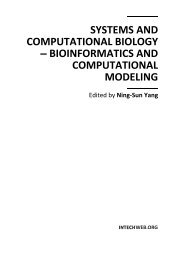




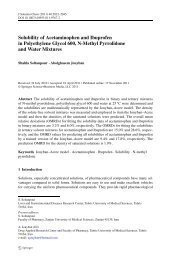
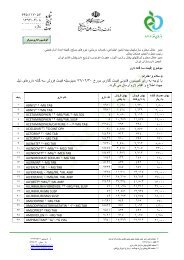

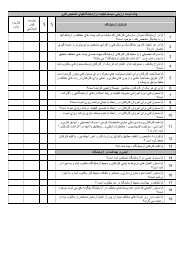
![focuspdca.ppt [Compatibility Mode]](https://img.yumpu.com/22859457/1/190x146/focuspdcappt-compatibility-mode.jpg?quality=85)
